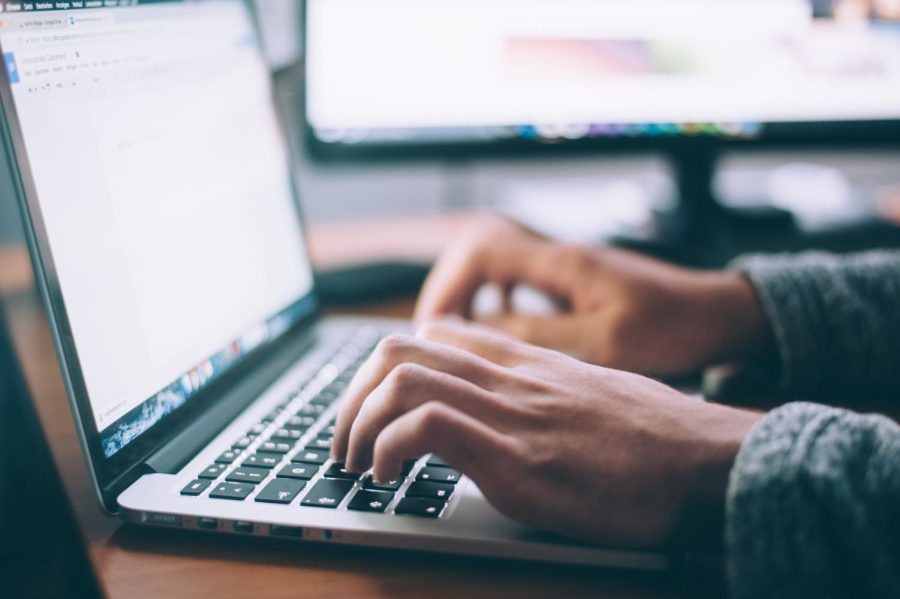Artificial intelligence sparks concerns among teachers
UNSPLASH PHOTO COURTESY OF Glenn Carstens-Peters
Advances in AI lead to concern of integrity in students work.https://unsplash.com/license
May 25, 2023
With the rise of AI technology, it almost seems we are going back in time. ChatGPT, an AI chatbot, was launched in November 2022 and is already disrupting classrooms across the country. Instead of writing essays on laptops, many educators have enforced hand-written essays due to the loss of student integrity because of this new technology.
However, some students are using ChatGPT to their advantage. ChatGPT can be used as a first line of communication for students. Instead of teachers having to respond to last-minute emails late at night or repeatedly answering the same questions, ChatGPT gives students immediate feedback any time of the day.
Additionally, teachers are beginning to adapt their curriculums to adjust to the growing impact of ChatGPT.
Mass Media teacher Wayne Woolley spoke on adjusting his curriculum.
“I’m going to start using it to have people, if they have access to it, use it as an editor,” Woolley said. “I’ve been experimenting with having it look for court cases and things like that I can use for my Advance Mass Media class.”
But, ChatGPT won’t only have an effect on classrooms, it will also have an effect on school districts as a whole. Cheating through AI has become more prevalent, and while it’s not exactly plagiarism, it’s not the student’s work either. This has led to teachers making students go through AI checks as well as plagiarism checks.
A senior at Princeton University, Edward Tian, has developed an app designed to combat AI, called GPTZero. This is one of the many tools teachers are using to ensure that students have turned in their honest work.
Kelly Harmon, Director of Curriculum and Instruction at Monmouth County Vocational School District shares how she has seen cheating with AI across the district.
“Currently, the consequences for cheating using AI are the same consequences for when a student plagiarizes,” Harmon said. “Administrators have been discussing AI’s capabilities and appropriate consequences for its misuse. All teachers and students have access to Turnitin.com; in fact, teachers will be relying on this program more and more to ensure the authenticity of a student’s work.”
Although ChatGPT is in its infancy stages, potentially the most concerning thing about it is its possible effect on the job market. Many jobs, excluding manual labor, are targets of AI’s replacement. According to Goldman Sachs economists, 18% of work globally can be replaced with AI, with lawyers and economists targeted heavily. Additionally, the creative field isn’t safe with AI programs developed for art, music and creative writers. Instead of waiting three years for your favorite artist to release a new album, you can get one in the same style instantly from AI–with your favorite artist singing it.
Sophomore Brody Lippincott of Wall spoke on his opinion on whether or not AI will affect the future of the job market for the worse.
“I don’t think so because I don’t think that people are going to let it become so out of hand that you know, the job market is completely destroyed, but I think it could make a dent,” Lippincott said.
With the future of AI so uncertain, teachers have to be willing to embrace AI in the classroom. Sophomore English teacher Aubrey Torta spoke about how she is willing to make a change.
“Every time I grade a paper, I run it through an AI checker, like twice, and, I’m thinking about are there ways I should be using ChatGPT in the classroom,” Torta said. “It’s the way of the future, it’s not going anywhere.”





